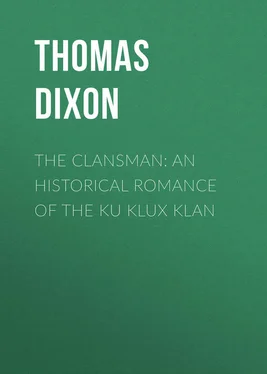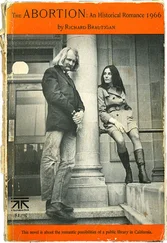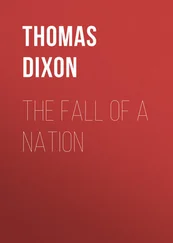Thomas Dixon - The Clansman - An Historical Romance of the Ku Klux Klan
Здесь есть возможность читать онлайн «Thomas Dixon - The Clansman - An Historical Romance of the Ku Klux Klan» — ознакомительный отрывок электронной книги совершенно бесплатно, а после прочтения отрывка купить полную версию. В некоторых случаях можно слушать аудио, скачать через торрент в формате fb2 и присутствует краткое содержание. Жанр: foreign_antique, foreign_prose, Историческая проза, на английском языке. Описание произведения, (предисловие) а так же отзывы посетителей доступны на портале библиотеки ЛибКат.
- Название:The Clansman: An Historical Romance of the Ku Klux Klan
- Автор:
- Жанр:
- Год:неизвестен
- ISBN:нет данных
- Рейтинг книги:5 / 5. Голосов: 1
-
Избранное:Добавить в избранное
- Отзывы:
-
Ваша оценка:
- 100
- 1
- 2
- 3
- 4
- 5
The Clansman: An Historical Romance of the Ku Klux Klan: краткое содержание, описание и аннотация
Предлагаем к чтению аннотацию, описание, краткое содержание или предисловие (зависит от того, что написал сам автор книги «The Clansman: An Historical Romance of the Ku Klux Klan»). Если вы не нашли необходимую информацию о книге — напишите в комментариях, мы постараемся отыскать её.
The Clansman: An Historical Romance of the Ku Klux Klan — читать онлайн ознакомительный отрывок
Ниже представлен текст книги, разбитый по страницам. Система сохранения места последней прочитанной страницы, позволяет с удобством читать онлайн бесплатно книгу «The Clansman: An Historical Romance of the Ku Klux Klan», без необходимости каждый раз заново искать на чём Вы остановились. Поставьте закладку, и сможете в любой момент перейти на страницу, на которой закончили чтение.
Интервал:
Закладка:
“I am sure they cannot. The name on that paper should be mightier dead than living.”
“Ah, but will it be? Do you know Mr. Johnson? Can he control Stanton? He seemed to be more powerful than the President himself. What will that man do now with those who fall into his hands.”
“He can do nothing with your son, rest assured.”
“I wish I knew it,” said the mother wistfully.
A few moments after the President died on Saturday morning, the rain began to pour in torrents. The flags that flew from a thousand gilt-tipped peaks in celebration of victory drooped to half-mast and hung weeping around their staffs. The litter of burnt fireworks, limp and crumbling, strewed the streets, and the tri-coloured lanterns and balloons, hanging pathetically from their wires, began to fall to pieces.
Never in all the history of man had such a conjunction of events befallen a nation. From the heights of heaven’s rejoicing to be suddenly hurled to the depths of hell in piteous helpless grief! Noon to midnight without a moment between. A pall of voiceless horror spread its shadows over the land. Nothing short of an earthquake or the sound of the archangel’s trumpet could have produced the sense of helpless consternation, the black and speechless despair. The people read their papers in tears. The morning meal was untouched. By no other single feat could death have carried such peculiar horror to every home. Around this giant figure the heartstrings of the people had been unconsciously knit. Even his political enemies had come to love him.
Above all, in just this moment he was the incarnation of the Triumphant Union on the altar of whose life every house had laid the offering of its first-born. The tragedy was stupefying – it was unthinkable – it was the mockery of Fate!
Men walked the streets of the cities, dazed with the sense of blind grief. Every note of music and rejoicing became a dirge. All business ceased. Every wheel in every mill stopped. The roar of the great city was hushed, and Greed for a moment forgot his cunning.
The army only moved with swifter spring, tightening its mighty grip on the throat of the bleeding prostrate South.
As the day wore on its gloomy hours, and men began to find speech, they spoke to each other at first in low tones of Fate, of Life, of Death, of Immortality, of God – and then as grief found words the measureless rage of baffled strength grew slowly to madness.
On every breeze from the North came the deep-muttered curses.
Easter Sunday dawned after the storm, clear and beautiful in a flood of glorious sunshine. The churches were thronged as never in their history. All had been decorated for the double celebration of Easter and the triumph of the Union. The preachers had prepared sermons pitched in the highest anthem key of victory – victory over death and the grave of Calvary, and victory for the Nation opening a future of boundless glory. The churches were labyrinths of flowers, and around every pulpit and from every Gothic arch hung the red, white, and blue flags of the Republic.
And now, as if to mock this gorgeous pageant, Death had in the night flung a black mantle over every flag and wound a strangling web of crape round every Easter flower.
When the preachers faced the silent crowds before them, looking into the faces of fathers, mothers, brothers, sisters, and lovers whose dear ones had been slain in battle or died in prison pens, the tide of grief and rage rose and swept them from their feet! The Easter sermon was laid aside. Fifty thousand Christian ministers, stunned and crazed by insane passion, standing before the altars of God, hurled into the broken hearts before them the wildest cries of vengeance – cries incoherent, chaotic, unreasoning, blind in their awful fury!
The pulpits of New York and Brooklyn led in the madness.
Next morning old Stoneman read his paper with a cold smile playing about his big stern mouth, while his furrowed brow flushed with triumph, as again and again he exclaimed: “At last! At last!”
Even Beecher, who had just spoken his generous words at Fort Sumter, declared:
“Never while time lasts, while heaven lasts, while hell rocks and groans, will it be forgotten that Slavery, by its minions, slew him, and slaying him made manifest its whole nature. A man cannot be bred in its tainted air. I shall find saints in hell sooner than I shall find true manhood under its accursed influences. The breeding-ground of such monsters must be utterly and forever destroyed.”
Dr. Stephen Tyng said:
“The leaders of this rebellion deserve no pity from any human being. Now let them go. Some other land must be their home. Their property is justly forfeited to the Nation they have attempted to destroy!”
In big black-faced type stood Dr. Charles S. Robinson’s bitter words:
“This is the earliest reply which chivalry makes to our forbearance. Talk to me no more of the same race, of the same blood. He is no brother of mine and of no race of mine who crowns the barbarism of treason with the murder of an unarmed husband in the sight of his wife. On the villains who led this rebellion let justice fall swift and relentless. Death to every traitor of the South! Pursue them one by one! Let every door be closed upon them and judgment follow swift and implacable as death!”
Dr. Theodore Cuyler exclaimed:
“This is no time to talk of leniency and conciliation! I say before God, make no terms with rebellion short of extinction. Booth wielding the assassin’s weapon is but the embodiment of the bowie-knife barbarism of a slaveholding oligarchy.”
Dr. J. P. Thompson said:
“Blot every Southern State from the map. Strip every rebel of property and citizenship, and send them into exile beggared and infamous outcasts.”
Bishop Littlejohn, in his impassioned appeal, declared:
“The deed is worthy of the Southern cause which was conceived in sin, brought forth in iniquity, and consummated in crime. This murderous hand is the same hand which lashed the slave’s bared back, struck down New England’s senator for daring to speak, lifted the torch of rebellion, slaughtered in cold blood its thousands, and starved our helpless prisoners. Its end is not martyrdom, but dishonour.”
Bishop Simpson said:
“Let every man who was a member of Congress and aided this rebellion be brought to speedy punishment. Let every officer educated at public expense, who turned his sword against his country, be doomed to a traitor’s death!”
With the last note of this wild music lingering in the old Commoner’s soul, he sat as if dreaming, laughed cynically, turned to the brown woman and said:
“My speeches have not been lost after all. Prepare dinner for six. My cabinet will meet here to-night.”
While the press was reëchoing these sermons, gathering strength as they were caught and repeated in every town, village, and hamlet in the North, the funeral procession started westward. It passed in grandeur through the great cities on its journey of one thousand six hundred miles to the tomb. By day, by night, by dawn, by sunlight, by twilight, and lit by solemn torches, millions of silent men and women looked on his dead face. Around the person of this tall, lonely man, rugged, yet full of sombre dignity and spiritual beauty, the thoughts, hopes, dreams, and ideals of the people had gathered in four years of agony and death, until they had come to feel their own hearts beat in his breast and their own life throb in his life. The assassin’s bullet had crashed into their own brains, and torn their souls and bodies asunder.
The masses were swept from their moorings, and reason destroyed. All historic perspective was lost. Our first assassination, there was no precedent for comparison. It had been over two hundred years in the world’s history since the last murder of a great ruler, when William of Orange fell.
Читать дальшеИнтервал:
Закладка:
Похожие книги на «The Clansman: An Historical Romance of the Ku Klux Klan»
Представляем Вашему вниманию похожие книги на «The Clansman: An Historical Romance of the Ku Klux Klan» списком для выбора. Мы отобрали схожую по названию и смыслу литературу в надежде предоставить читателям больше вариантов отыскать новые, интересные, ещё непрочитанные произведения.
Обсуждение, отзывы о книге «The Clansman: An Historical Romance of the Ku Klux Klan» и просто собственные мнения читателей. Оставьте ваши комментарии, напишите, что Вы думаете о произведении, его смысле или главных героях. Укажите что конкретно понравилось, а что нет, и почему Вы так считаете.












